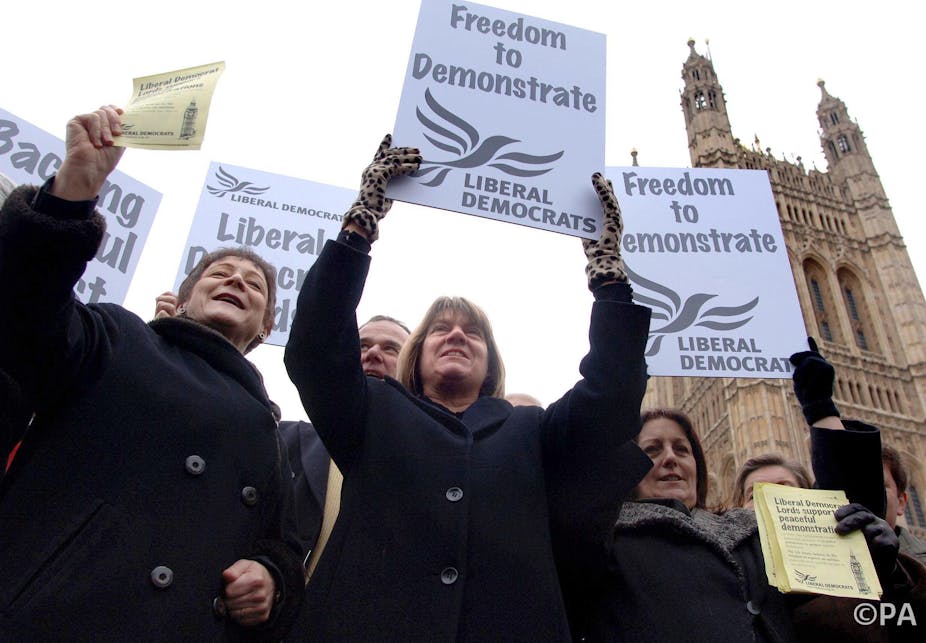In electoral campaigns, what’s most interesting is often what’s not being talked about. So it goes with constitutional reform, which has taken a back seat compared to its prominence in 2010.
In that campaign, the Liberal Democrats in particular campaigned on the promise of constitutional reform, pledging to change Britain’s political culture and create a fair politics by fixing the political system.
But this time around, much less attention is being paid to the issue all round – and the Lib Dems are following suit.
This party’s manifesto does make some promises, promoting for example plans to introduce votes for 16-year-olds in local government elections, House of Lords reform, changes to party funding and “Devolution on Demand” – but the focus of the Lib Dems’ campaign has been elsewhere.
Given the loss of the AV referendum on the voting system and the deadlock over House of Lords reform, this may be unsurprising. But the Lib Dems do have a positive story to tell: think of the implementation of fixed-term parliaments and the devolution of funding to local government, or indeed the end of the era of single-party government, for which they can claim at least some credit.
But of course, changing Britain’s current constitutional arrangements raises some difficult questions for the Liberal Democrats – particularly when it comes to House of Lords reform.
Shut out
As things stand, the House of Lords is composed mostly of appointed members who are nominated by political parties. While many members do not express a party affiliation (there are 179 crossbench peers, 21 non-affiliated ones and 26 bishops), the majority of peers (542 of 778) belong to the three main parties. The Conservatives have 224 peers, Labour 215 and the Liberal Democrats 103, with 15 for the other parties.
There are no hard and fast rules about how the number of peers each party has is determined, but the convention has been that membership of the House of Lords reflects that of the Commons. And that bodes ominously for the Lib Dems given their poor prospects for May 7.
The party is predicted to lose many seats in the Commons, though just how many remains uncertain. That means it’s likely to be heavily over-represented in the Lords.
And since the Lords play a crucial role in amending and scrutinising legislation, that could help the party retain significant influence over the legislative process despite what will probably be a precipitous decline in its vote share. This perhaps explains why the party’s manifesto is rather vague on Lords reform, merely promising to cut the number of Lords to 450 and reform it “with a proper democratic mandate”.
So just as some of the Lib Dems’ MPs may be saved by the very first-past-the-post system it tried to abolish, they may greatly benefit from the current constitutional setup once they return to parliament.

